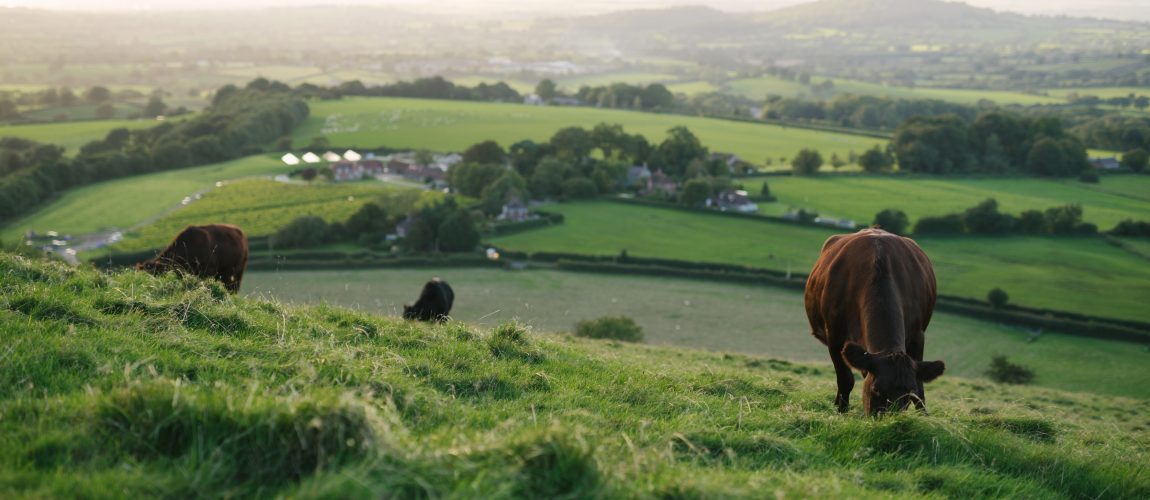What an animal eats during its life can have a huge effect on the meat it produces. So what is the difference between grass fed meat and grain fed meat?
Farm animals have been eating grass since, well, forever. For much of human history, farming has been a local, small scale enterprise, with farmers raising animals on the surrounding land and selling their produce to the local community. Over the last two centuries, this has all changed. The advent of industrialised farming may have allowed farmers to make much more money, but the quality of life for the animals, the nature of their diet and the general welfare of the animals and the environment have all been put into question.
Thankfully, not all farmers have sold their integrity for the promise of big money. While grain fed meat is unfortunately all too common, many smaller farms still stick to the ancient ways, raising their animals on a natural diet of grass, flora and clover. This is deemed to be an ethical way to farm, but what difference does it make to the quality of the meat? In short: grass fed meat vs grain fed – which is better? Read below to find out.
Grass fed meat vs grain fed – which is better?
In some ways, farm animals – cows, chicken and pigs – are very simple creatures. Feed and shelter them, and they grow bigger. So why does it matter what they eat? Surely a high-energy diet of cereals and soy will make an animal grow just as well as a diet of grass, and much quicker too? Wrong.
Like humans, farm animals are not as simple as they appear. A cow, for example, has many stomachs, the end result of thousands of years of evolution which helps it to slowly draw all the vitamins and nutrients it needs from the grass that is its natural food source. Feeding it grains will help it grow bigger faster, but its digestive system will simply turn all that carbohydrate into sugar and fat (especially if it isn’t free to exercise, which grain fed cows rarely are). This sugar and fat remains in the meat, meaning the burger or steak on your dinner table will have an unnecessarily high fat and sugar content, and a lower level of the vitamins and minerals – such as omega 3 fatty acids and B vitamins – that a grass diet naturally produces.
Grass fed meat also contains far less, if any, chemicals compared to grain fed meat. This is because of the different ways in which the animals are raised. Grass fed animals roam freely around fields, pastures and meadows, coming into contact with fresh air, sunlight, and natural bacteria that helps them build strong immune systems to protect against disease. Livestock, on the other hand, rarely see sunlight, and are kept in very close proximity to each other. Since they don’t have the chance to build strong immune systems, which is often combatted through the use of antibiotics – which ultimately makes it way through the food chain to us.
There can be no doubt that grass fed meat is the sensible, as well as ethical, choice.
Where to buy grass fed meat?
But where can you buy high quality grass fed meat? It can be difficult to know where the supermarkets source their meat from, and your nearest butcher may be more than a short walk away.
But fear not. There are plenty of companies specialising in ethical, delicious grass fed meat, like the Dorset Meat Company. From beef to pork, chicken to venison, responsible meat brands are taking a stand against the mass market approach being used in supermarket supply chains. If you want better quality meat that tastes delicious and contains all the nutrients that nature intended, you’d be well advised to take a closer look at how the meat you eat has been reared.


 Is Your Basement an Asset or a Liability?
Is Your Basement an Asset or a Liability?